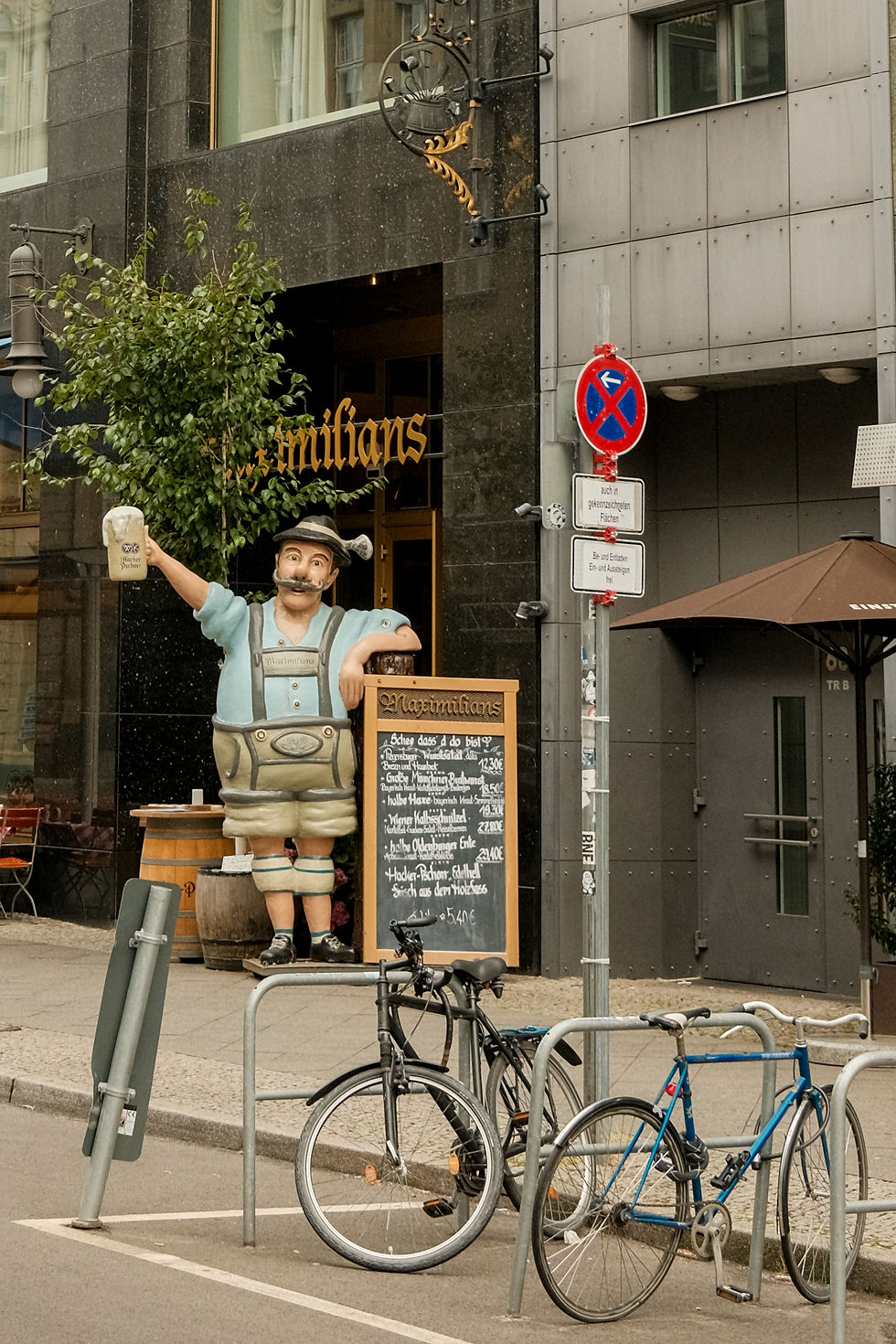
That means, hello from Germany 🙃 So excited to talk about this place, because it's not talked about or visited enough! I am guilty of this: if I chose to do Europe over the summer, I quickly think of Spain, France, and Italy first. And while those places are so beautiful, I think tourism has gotten out of control lately, likely because of yolo life post-covid. So that's why for our summer stint in Europe, we wanted to make sure we were out of these popular countries in June and July, and thought to try Germany instead! And we really loved it - it's wayyy less crowded and is also much cooler (in temperature, but in my opinion it might also be, cooler 😎 lol) than the other southern or western regions in Europe that we've been to. This post is a long one, but it's because I have so much to say! So let's get into it...

HISTORY
Germany's history is dark and layered: In the 20th century alone, they were majorly involved in two world wars, a failed democracy, Hitler's dictatorship, the Holocaust, and the country was then divided for 40 years after WWII. And since the fall of the Berlin Wall happened only in 1989, many parents of people my age could speak about what life was like in the Cold War, especially for East Germans. West Germany had a capitalist society with a free market, but East Germany was run by the Soviets so they had no free elections and no free market - leaving materials and produce hard to come by. Most people in this region had to wait 10 years to purchase a car! On top of that, they couldn't travel internationally, listen to music or watch movies from the west, or speak out against their government. The Soviets were so anti-West that they actually blackmailed their citizens to spy on their friends and family! They wiretapped their homes when they were gone, just to see if anyone had plans to escape or if they talked about disliking their situation. If you did, you were brought in to be tortured or mysteriously "disappeared" - that's some stuff that belongs in the Middle Ages but somehow all this only ended 30 years ago? Just insane. 🤯
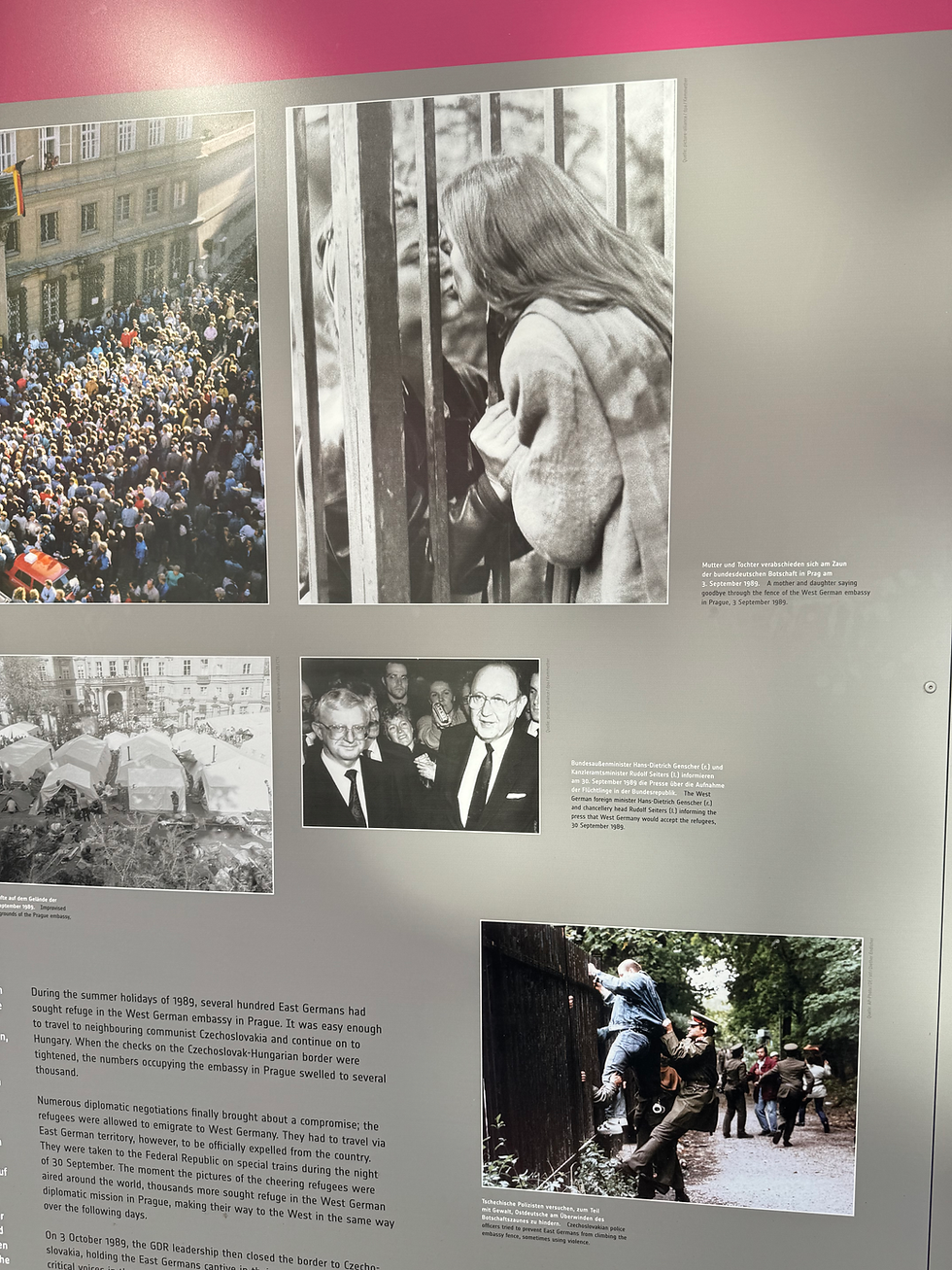

Since the reunification only happened in '89, I asked my tour guide if there are any differences between East and West german people. He said yes, although the wall has come down, the difference in how people grew up in that world for 4 decades still has effects in how they converse and exist in society today. Growing up with such limited freedom, East Germans differ from the Westerners in that:
They don't like to joke too much because their parents would hush them as a child, for fear of the government hearing.
They can have overall distrust in what their government says is the right thing to do. The most recent evidence of this are the amount of Covid deniers in this region!
Since they didn't grow up easily being able to purchase goods or services like the Westerners did, Easterners are bigger on growing their own food, reusing things like containers, finding multipurpose uses of things, and completing repairs around the house or their car on their own.
This was a very fast dip into the history, but I'll go more into things in the museums section below. But before that, here are some highlights and things we observed from the cities we went to in Germany!
MUNICH
I really enjoyed Munich, it's such a leafy green city with a ton of parks and a mix of modern and historical buildings.
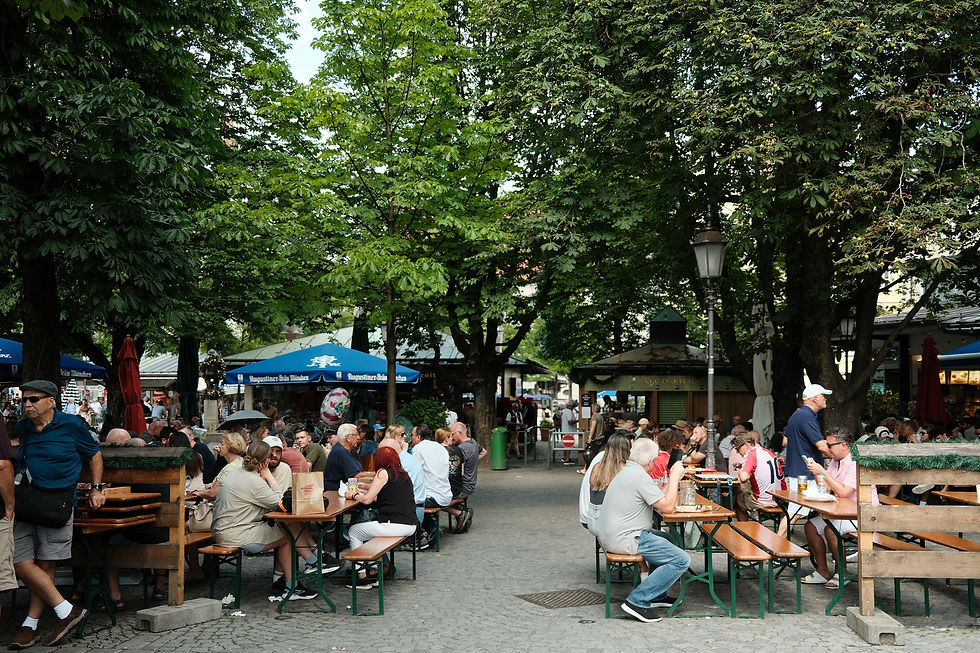
Farmers markets for produce and affordable eateries are found in quite a few parts. We visited a market that has been active since the 14th century! And we know from Oktoberfest how much Munich loves beer, but I learned that in the 1300s, more than 30 breweries popped up in this area, mostly by Catholic monks. They stored their beer in courtyard cellars below the shade of bushy chestnut trees to keep cool .
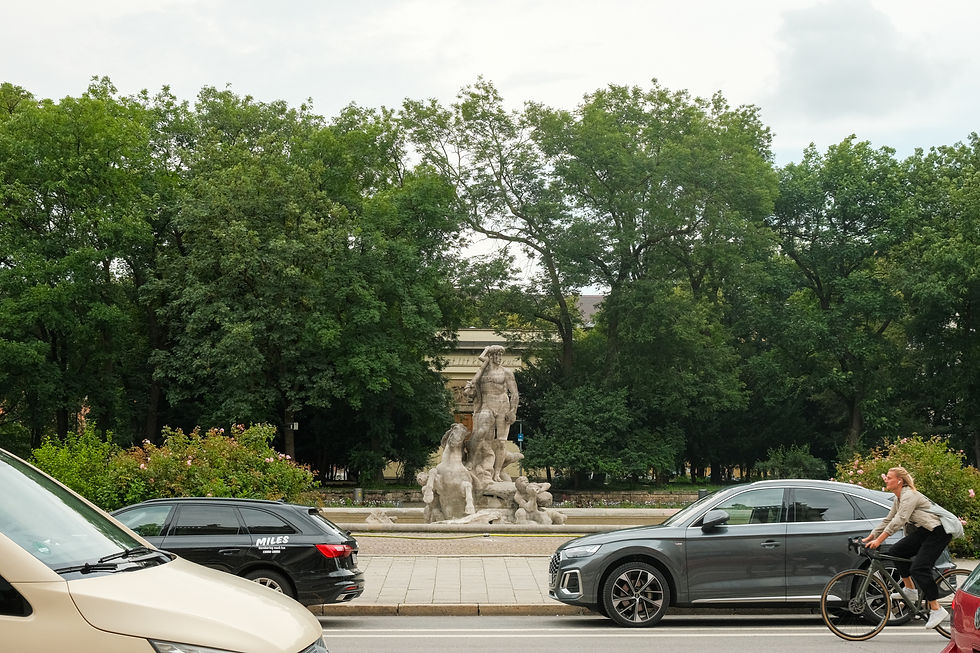
The availability of so many parks was intentional by city planners when rebuilding the city post WWII. They really wanted to emphasize the quality of life! That's why year after year, Munich is high on lists of world's most livable cities. Locals think of this city more as a tight knit community, and they proudly nickname their metropolis as "Millionendorf" - the village of a million people.
We've been looking forward to experiencing a summer festival in Europe and this one called Tollwood was so fun. It was two weeks long, and completely free! Just pay for your food, drinks, and do some shopping by local, small businesses. The best part I noticed was how family friendly it was - I saw toddlers dancing to jazz artists, and saw senior citizens pounding liters of beers haha! It was so much fun to see and be a part of the festival.
BERCHTESGAADEN
A couple we met who lives in Munich said one of their fav parts of living in the southern regions is visiting the countryside and the many opportunities to be in nature. Just 2 hours away from Munich is Berchtesgaaden, a picturesque town nestled within the German Alps. A great place for hiking or you can take a bus to the top and enjoy the views from the restaurant! The top of this peak is called Eagles Nest, and was Hitler's vacation home (and sometimes his hiding spot) during WWII.
BERLIN
I really struggle to find other ways to describe Berlin other than this city is just so damn… cool. Super progressive, artsy, multicultural - it really is thriving as a dynamic, cosmopolitan, powerhouse. I know many cities and capitals can be this way, but there are some especially unique things I noticed:
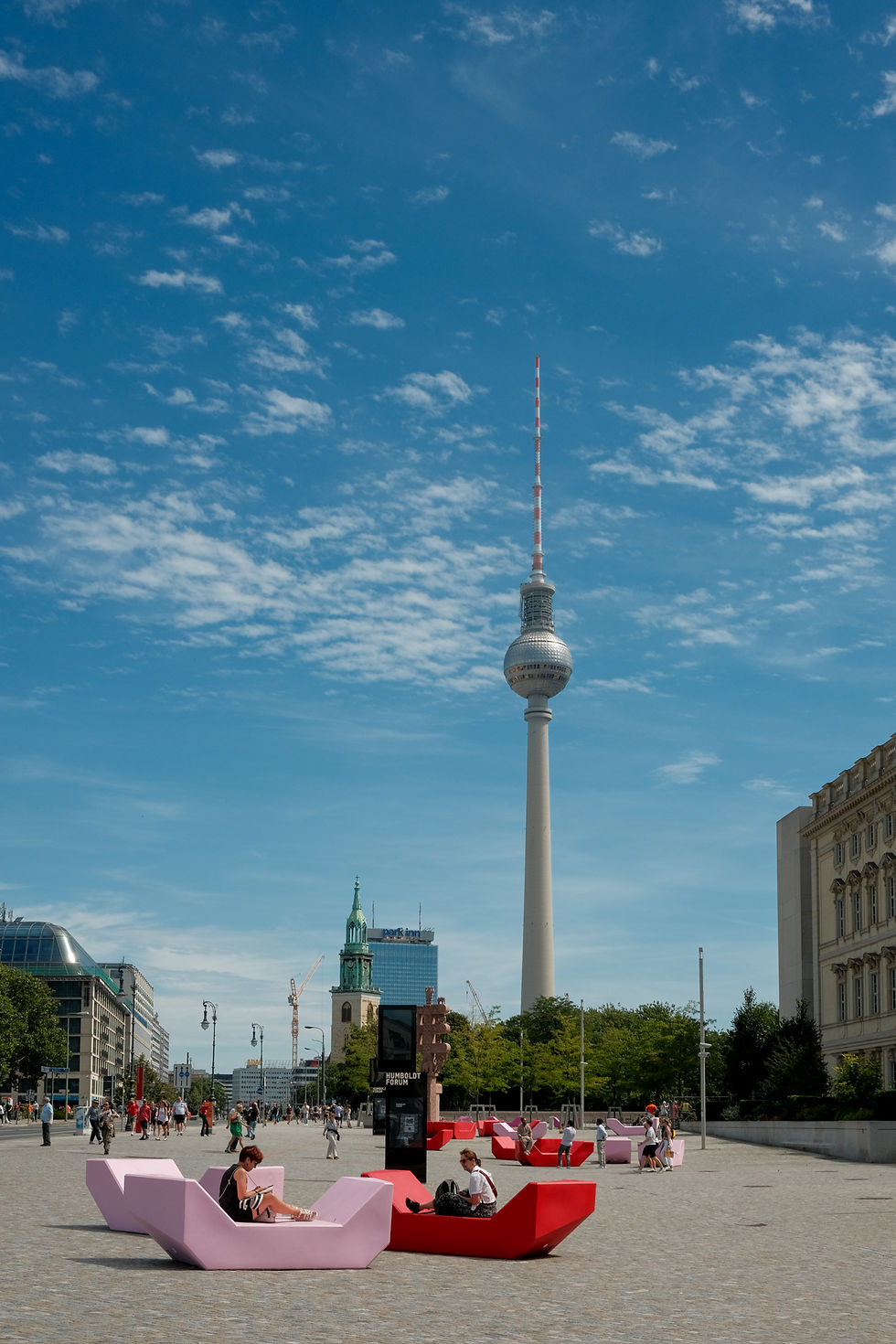
We were there over July 4th week and I was like, where is everyone? The city feels so empty! Our guide said its because this is one of the few capitals that's decentralized, while having low population density. After the city was split during the Cold War, there's never been a "central" neighborhood that people flock to. This really allowed for the character of the city to be spread out, so it doesn't feel as hectic! And, gives people quite a few options in which areas they want to live in - most people's average commute to work is 20ish minutes. A dream!
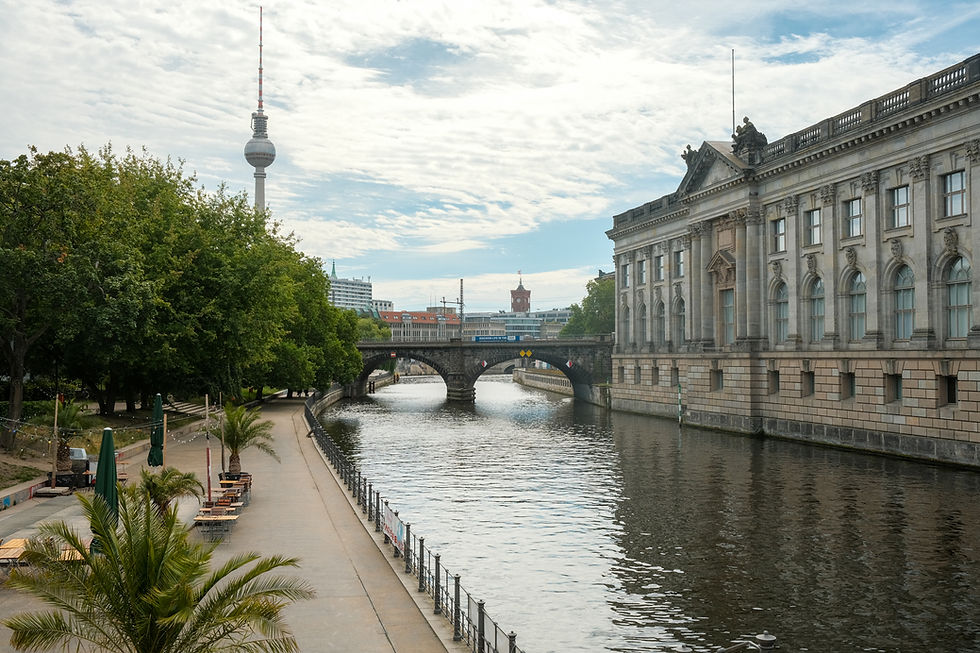
Did you know that Berlin is the vegan capital of Europe? Every restaurant or market we went to had multiple vegetarian and vegan options. There are a couple reasons as to why this is: After the Chernobyl disaster in 1986, there were concerns of how much radiation in foods and factory farming exists, so West Germans tried to buy organic food more. Another reason could also be that when the wall fell and the city opened, the Berlin population started rapidly changing. An influx of young artists moved to West Berlin from all over Europe and the world to take advantage of the cheap rents and expansive lifestyle - and these kind of creatives usually bring alternate ways of thinking and food trends with them, like vegetarianism.
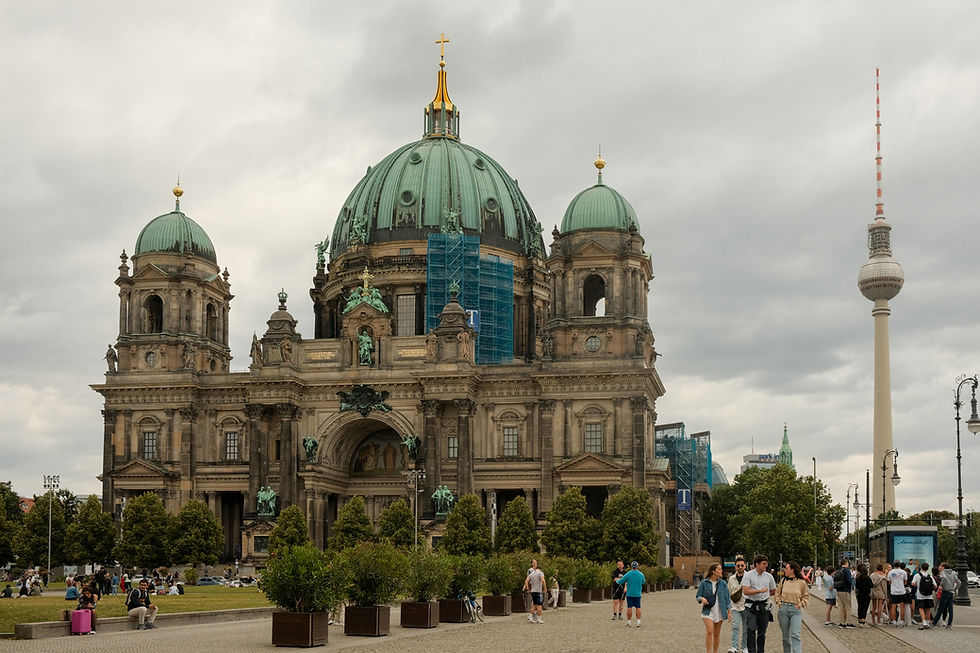
BERLIN MUSEUMS
Berlin has 170 museums in their city!! And most of them are free because they don't believe in charging people to learn about their history and culture... so awesome. Berlin really confronts Germany's troubling history, everywhere. They don't shy away from details and are very upfront of any and all wrongdoings. Really different to see, I can't say I've seen museums in America or Japan do the same. Here are my top 3 spots:
Jewish Museum of Berlin
A friend recommended this one, and I'm so glad we went - I really learned so much about Jewish history and culture. Its not a museum solely dedicated to the Holocaust, but actually shows how the local Jewish communities are victims of an ever-changing status that led to the darkest days of Nazi Germany. Many of the prejudiced social attitudes towards Jews originated during the Middle Ages as Christian Crusades always viewed them as non-believers and non-conformists. Then in 1096, the Rhineland Massacres started, which are seen as some of the first antisemitic events in Europe, eventually leading to the Holocaust. From the massacres, many European Jews were driven out of their homes or killed. As plagues ravaged Europe, when there was any disease or sickness that was causing "mysterious deaths" in adults or children, rumors were started that Jews were behind it all. Things like, killing children to use their blood in religious rituals, or that they placed poison in their drinking water wells.
It was really heartbreaking to read how much the Jewish community had tried to integrate in to German society over the next few centuries. Traditionally, Jewish people really value education and many have gone into science and education. Becoming doctors and scientists, they worked really hard to garner respect in the German society. Up until WWII, this was successful too - many Christians and Jews worked well together, developing inventions and innovations, and forming friendships. The most famous example is Emil Ratenau, who really advocated for Thomas Edison's patents for electricity, eventually bringing electricity to every home in Germany. Even moreso and more heartbreaking, in the first world war, Jews fought enthusiastically for Germany in hopes to finally be recognized as equal citizens to the rest of Germany.
We all know about the Holocaust, but I never really understood when the antisemitism started from. I truly don't think it was taught in American schools enough. But that's what museums are for, a way to remember people for the injustices put on them, and to feel some hope that our future will be better.
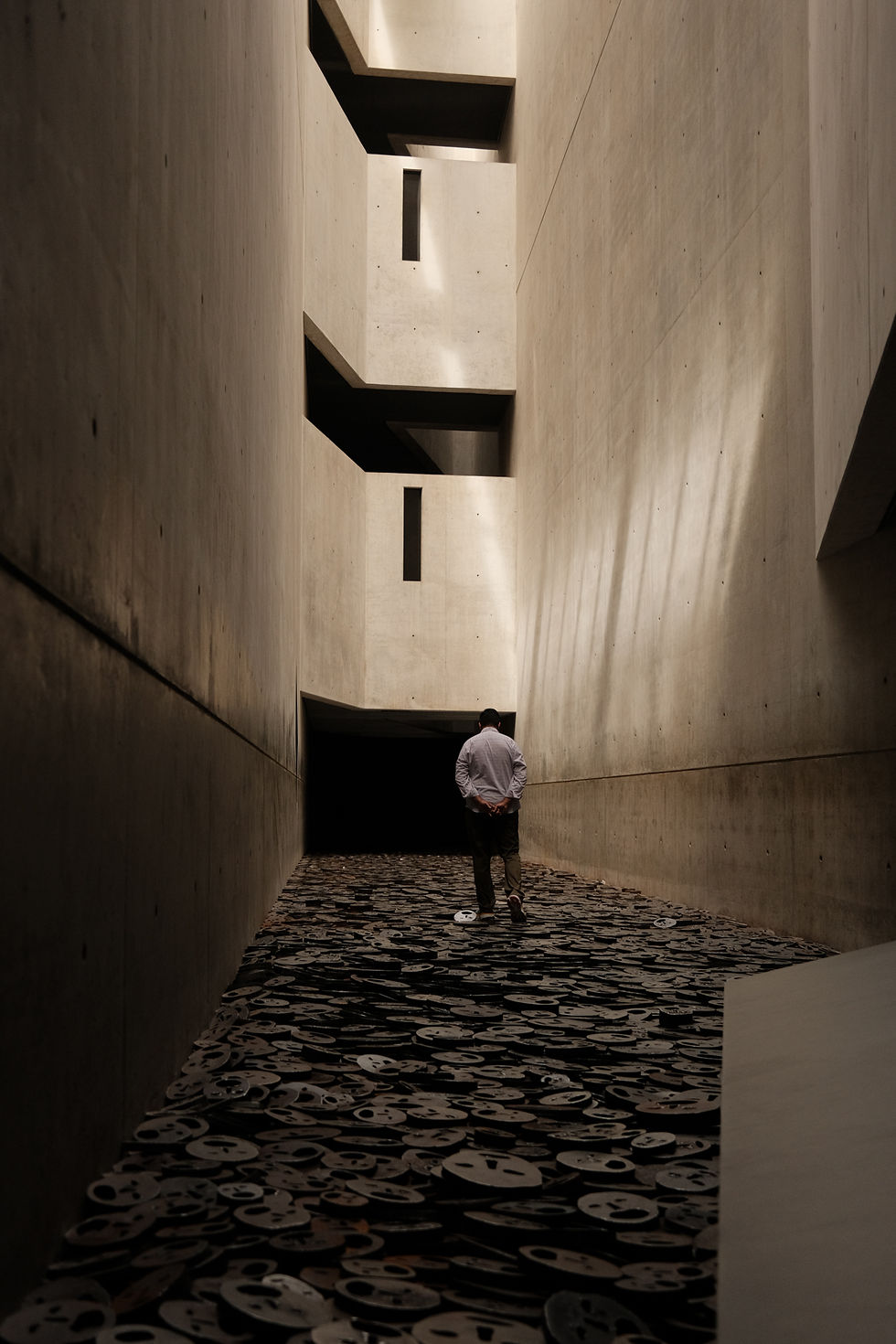
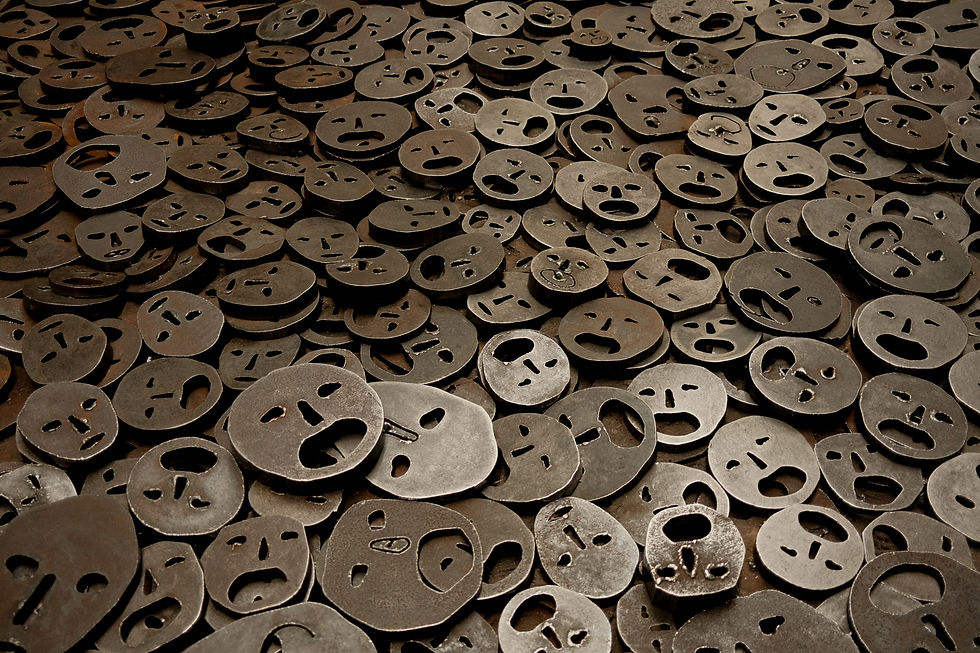
Stasi Museum
Ok this museum was really fascinating. A bit difficult to read about, yet I also went down very deep rabbit holes about it once I got home. I do not know why I'm like this. Anyway, to give some background about who this government org was: The GDR (Soviets who controlled East Germany) was a dictatorship that removed basic human rights from their citizens. And I mean, they were OBSESSED with being anti-west and pro-Soviet. So they developed an organization of "Secret Police" where people went undercover as spies to pretend to be friends (or lovers!) with ordinary citizens. Eventually, it grew so big that the government started recruiting citizens to spy on their own friends and family members, and threatened to throw them in jail or would be killed if they didn't comply. This essentially started some psychological warfare to foster an environment of distrust, fear, and suspicion between friends, neighbors, and other community members. You couldn't even trust that your daughter's new playdate from her elementary school was an organic connection! This operation lasted 40 years, and by the end of the 1980s, there were 170k known informants, but people suspect it could be even 500k!! That's 1 in 6 East German people...
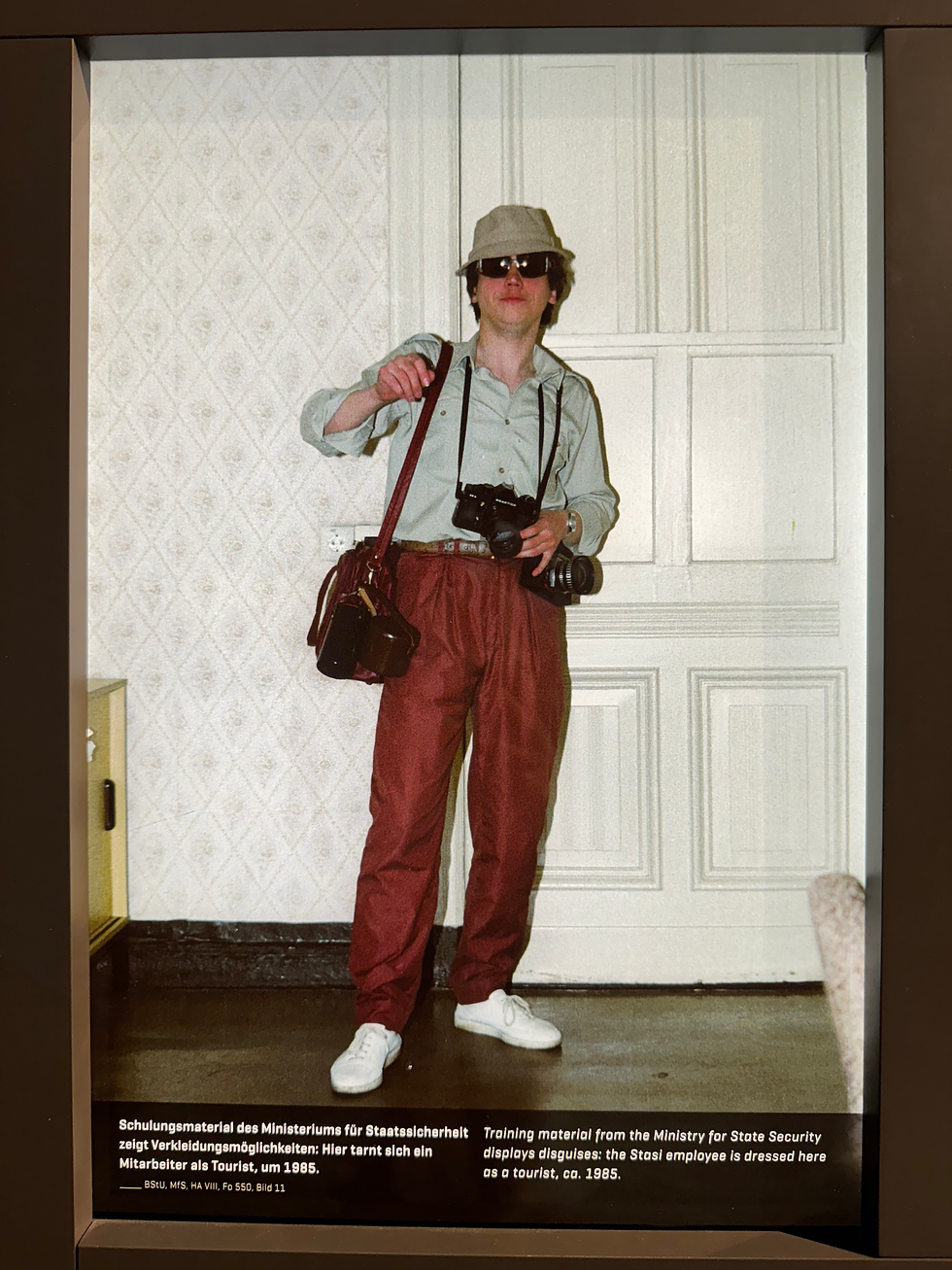
The museum showed spies disguised as tourists, and showed items in people's homes that were bugged and wiretapped, so the government can listen in on personal conversations.


After the reunification in 1990, all Stasi records were released to the public, so people can see what information their government had on them. The more I read about this, the wilder the stories got…
One person found these cute pics of their grandparents holding hands by a lake, but then could see it was taken by someone from inside a car (so creepy)
Another person looked in their records and learned that who he thought were his biological children, actually weren’t. So crazy for the government to do detective work on you, and you never even know!
An American school teacher moved to Berlin in the 80s, and the Stasi planted a fake teacher in the same school to watch him. When this fake teacher started developing a (real) friendship with the American teacher and started to feel guilty for what he was doing, he started dropping hints like pronouncing American words obviously wrong (like drugstore and Cleveland), and the real teacher got the hint. Since that day, he openly talked about how much he loved communism, understanding that there was likely a recording device under his friend's clothes.
The most mundane things were recorded and listened to, even when couples had fights about their marriage. The records would have notes on every conversation, saying things like the wife is quite bossy, or that the family tried a new recipe tonight 😆
I mean, so many of these things belong in FICTION. I guess that’s why there are so many tv shows and movies about this topic. The big ones are The Americans, The Lives of Others, and Goodbye, Lenin! And yes, I fully plan to watch these, I can't tell you how many hours I've already given to reading about this topic lol.
Berlin Wall
Ok will quickly drop this here, this was really fun to see. A large part of the Berlin wall is still standing, and they recruited 118 artists from 21 countries to draw murals on each wall pane. It's the largest open air gallery in the world, and it was really cool!
Last words...
Our 3 weeks in Germany were one of the most educational and interesting experiences I've had, simply because the country is so intentional about how it honors it's past. While many of the cities have been rebuilt post-WWII, some of the buildings were left as-is, or museums or memorials were created, to remind locals and visitors of what has happened in this country as a bid for it to never happen again. As the years progress, there will be fewer and fewer people to speak about about how they lived through Germany's difficult history, so to face these reminders head-on is so incredibly important.
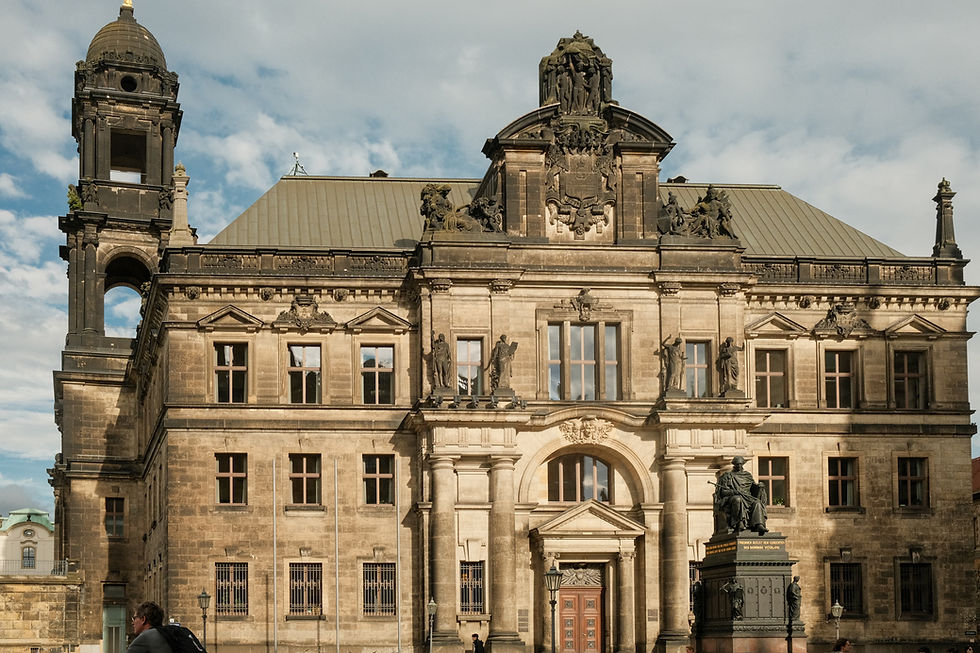
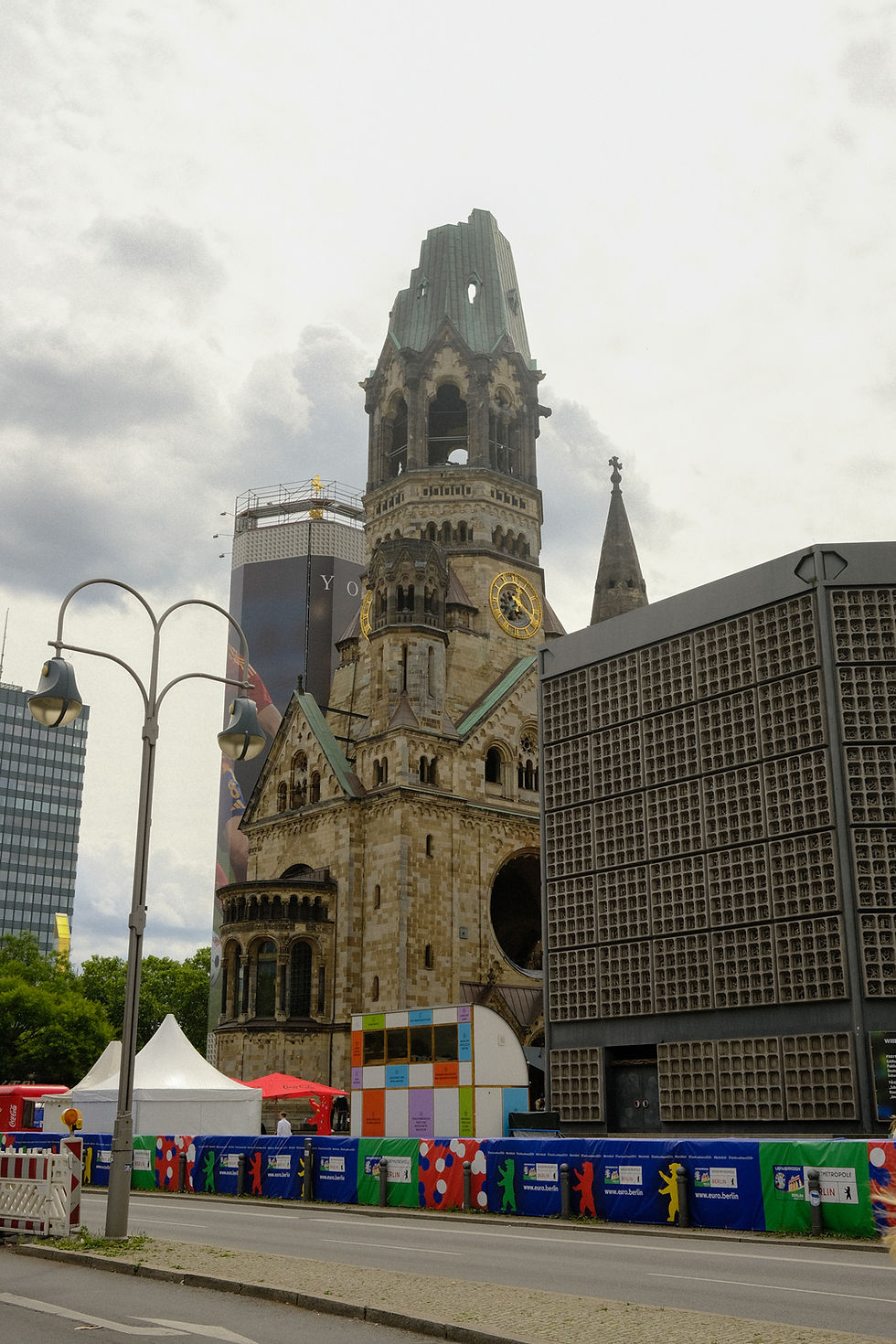


























There is probably a word limit for comments. It truncated a few lines where I had said that I liked the part where you talk about how the system influenced the attitude and behaviour of the people and they cannot shake it off.
There is a saying in Hindi/Urdu; Dekhane wale ki nazar honi chahiye. It means you must have eyes to see. I obviously lacked the right nazar on my visits to Germany. Actually, I'm revisiting Europe or should I say, rediscovering Europe through your blogs (that's Su, Adit and Sammy, not to forget her detailed piece written in a charmingly chatty style).
I must confess that I had found Germany cold, grey, steely,....I certainly missed the warmth and the colors that your blog brings out. Maybe I can ask for reprieve given my mitigating circumstances of being on business visits.
Talking of vegan and vegetarian food, I am reminded of the sticky and at times hilarious situations I found myself i…
Wow this is probably my favorite post so far! I was glued the whole time.
Fascinating to hear that there’s still distinct differences in people of East vs west Germany heritage - but never thought about how all those events are so recent that it makes sense. Just feels like so long ago when it’s really not.
Eagle’s nest was 🤩 I bet they gave great skiing there in winters.
Eye opening to see how Germans face their troubled past. Far cry from the US celebrating aspects of its own troubled last. Like they say, those who don’t learn history are doomed to repeat it 😕
The spying stories were absolutely wild - stuff of movies for sure. Tourist cosplay…